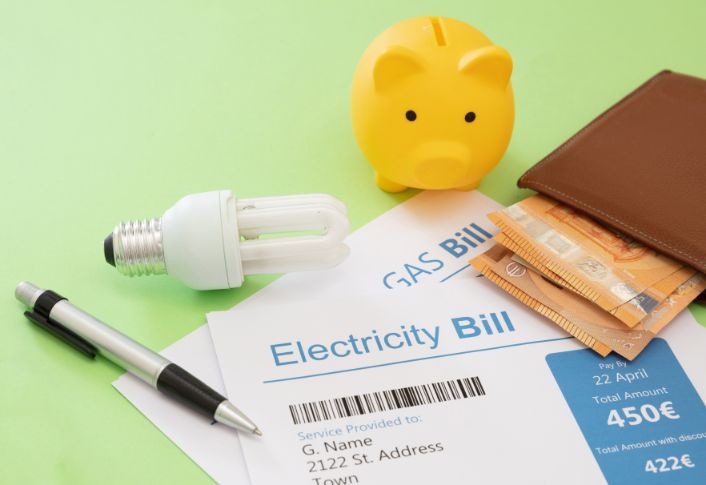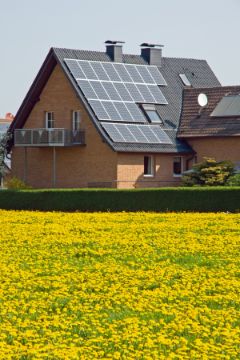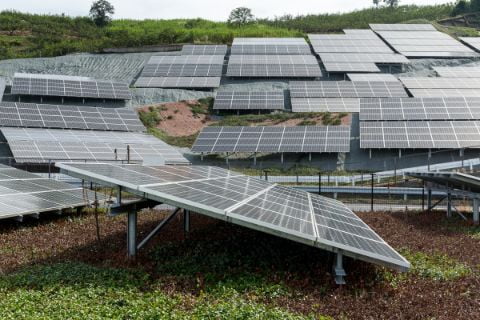In an era defined by increasing environmental awareness and the search for sustainable, renewable energy sources, solar energy stands out as an essential solution. The importance of solar power stems from its countless advantages, including its status as a renewable resource, its potential for reducing electricity costs, and its role in promoting environmental conservation. Harnessing the power of the sun not only benefits individual consumers, but also contributes significantly to global efforts to combat climate change, encourages technological innovation, and fosters socio-economic development in underserved regions.
Solar energy is important for numerous reasons, and its relevance is growing as we search for cleaner, more sustainable sources of power. Here are some key reasons why solar energy is important:
- Renewable Energy Source: Solar energy is a renewable resource, meaning it won’t run out as long as the sun is shining. We can harness this energy wherever sunlight is available, which is practically everywhere on Earth. In contrast, fossil fuels are finite and are expected to deplete over time.
- Reduces Electricity Bills: Once the initial investment for solar panels and installation is covered, the cost of generating electricity becomes virtually zero. This can significantly reduce electricity bills. In addition, in some countries, homeowners can sell their excess solar power back to the grid, further offsetting the cost.
- Environmentally Friendly: Solar energy production generates clean, green, emissions-free electricity. It’s a great way to reduce your carbon footprint. Unlike traditional fossil fuels like coal and petroleum, solar energy doesn’t release harmful greenhouse gases or pollutants.
- Energy Independence: With solar power, nations can work towards energy independence from unstable or politically volatile regions. This has significant implications for energy security and autonomy.
- Job Creation: The solar power industry is labor-intensive, which leads to job creation. According to the International Renewable Energy Agency (IRENA), the renewable energy sector, including solar, created 11.5 million jobs globally in 2019.
- Scalability and Versatility: Solar panels can be deployed in a range of scales and environments, from small installations for individual homes or remote power systems to large-scale, utility-scale solar power stations. This makes solar energy a versatile solution for different energy needs.
- Technological Innovation: Solar power also drives technological advancement in battery storage, energy efficiency, and electric vehicles, among other areas.
- Sustainable Development: In remote or underdeveloped regions without access to the traditional electric grid, solar power can provide an affordable and sustainable solution to energy needs, fostering social and economic development.
- Emergency Power Supply: In cases of power outages or natural disasters, solar energy systems can provide a crucial source of power when it is most needed.
Given the challenges posed by climate change and the need to reduce greenhouse gas emissions, the importance of solar energy is likely to continue to grow in the future.
Renewable Energy Source

One of the most significant advantages of solar energy is its status as a renewable resource. The sun shines each day, providing an abundant, consistent source of energy that we can harness through solar panels. This contrasts sharply with fossil fuels like coal, oil, and natural gas, which exist in limited quantities. Once we’ve extracted and used these resources, they’re gone for good.
Our sun has about 5 billion years left in its life cycle, according to astrophysicists, providing a virtually inexhaustible source of energy on a human timescale. Sunlight is available everywhere on the planet, making it a universal resource. Even in less sunny areas, solar energy can still be used effectively, which is not the case with many other types of renewable energy that require specific conditions.
Consequently, the use of solar energy decreases our reliance on fossil fuels, which are not only finite but also contribute significantly to global warming through the release of carbon dioxide when burnt. Therefore, the shift towards renewable resources like solar energy is not just a potential solution for our energy needs, but also a vital strategy in the fight against climate change.
Reduces Electricity Bills

One of the significant benefits of installing solar panels is the potential for reduced electricity bills. After the initial installation, the ongoing costs of solar panels are extremely low compared to traditional energy sources. The sun provides its power for free, so once your solar panels are installed, the cost of generation is virtually zero. You’re generating your own power every time the sun shines, reducing the amount you need to purchase from the grid.
Furthermore, many countries and regions have ‘net metering’ programs or similar incentives in place. This allows homeowners to sell excess power back to the electric grid. For instance, on a sunny day, if your solar panels produce more electricity than you use, that excess can be fed back into the grid, and you will receive credit or payment for that electricity. This can offset your electricity costs even further.
Moreover, while the upfront cost of solar panels can be significant, prices have been falling rapidly, and various subsidies or tax incentives can also help offset the initial costs. In many cases, the cumulative savings on electricity bills over the years can fully compensate for the initial investment, making solar power a cost-effective solution in the long run.
Environmentally Friendly

Solar energy is an incredibly environmentally friendly source of power. When solar panels convert sunlight into electricity, they generate no greenhouse gases, unlike conventional fossil fuel-based power sources. This makes solar energy a key tool in efforts to combat climate change and reduce our overall carbon emissions.
Coal, oil, and natural gas—the world’s leading sources of energy—produce a significant amount of carbon dioxide and other greenhouse gases when burned. These emissions are a major driver of global warming and climate change. Additionally, the extraction, refining, and transportation processes associated with these fuels can also have severe environmental impacts, including oil spills and land degradation.
On the other hand, solar panels produce electricity without burning or using any kind of fuel, except for sunlight. Therefore, once installed, they have a negligible environmental impact. While it’s true that the production of solar panels involves some emissions and resource use, research has shown that the energy payback period—the time it takes for a solar panel to produce the amount of energy that was used to manufacture it—is typically only a few years, and continuing to decrease as technology improves. After this period, the electricity generated is essentially carbon-free.
So, by switching to solar energy, we can significantly reduce our reliance on fossil fuels and help to create a cleaner, more sustainable future. This reduction in carbon emissions can be a substantial contribution towards efforts to mitigate the impacts of climate change.
Energy Independence

Solar energy can significantly contribute to a country’s energy independence and security. Many countries rely heavily on imported fossil fuels for their energy needs, making them vulnerable to supply disruptions, price volatility, and geopolitical conflicts. These dependencies can have serious implications for a nation’s energy security and economic stability.
However, the sun shines everywhere, and harnessing solar energy allows nations to tap into a locally available, inexhaustible resource. This means that they are not subject to the same vulnerabilities as those associated with fossil fuel use. Once solar infrastructure is installed, the energy it generates is not only renewable but also consistent and predictably abundant. Solar power, therefore, provides a more secure and stable energy supply.
In addition, solar energy can help countries to diversify their energy mix, reducing reliance on a single source and thereby increasing resilience. It also promotes local job creation and can stimulate local economies, providing benefits beyond just energy production.
Therefore, by investing in solar power, countries can work towards energy independence, securing a more stable energy future, and reducing their exposure to the economic and political instabilities associated with fossil fuel markets. This shift towards renewable energy sources like solar also aligns with global efforts to combat climate change, further emphasizing its importance.
Job Creation

The solar industry indeed plays a significant role in job creation across the globe. As the sector continues to grow, so does its workforce. The process of manufacturing, selling, installing, and maintaining solar panel systems is labor-intensive, creating numerous jobs along each step of the value chain.
According to the International Renewable Energy Agency (IRENA), the renewable energy sector, which includes solar, wind, hydroelectric, and other clean energy technologies, created 11.5 million jobs worldwide in 2019. This statistic underscores the economic potential of this rapidly expanding industry.
Solar energy, in particular, has seen substantial job growth. Positions in this sector range from research and development, manufacturing, construction, installation, project design, sales, and more. As countries invest in solar and other renewable energies to achieve their climate goals and transition away from fossil fuels, the job creation potential in these sectors is expected to grow even further.
Moreover, these are often high-quality jobs that pay well and require a variety of skills, providing opportunities for both skilled and unskilled labor. The growth of the solar industry can therefore contribute to economic development, poverty reduction, and social equity, adding to the numerous benefits of this sustainable energy source.
Scalability and Versatility

One of the remarkable attributes of solar power is its scalability and versatility. Solar energy systems can be designed and installed to suit various scales, ranging from small, single-panel setups for individual homes, to large-scale solar farms that contribute power to the grid.
On a smaller scale, individual households or businesses can install solar panels on rooftops or other available spaces. These systems can be tailored to meet specific energy requirements, providing electricity for lighting, appliances, and other needs. They can also be coupled with battery storage systems to provide power even when the sun isn’t shining.
At the larger end of the scale, solar farms or utility-scale solar power stations can cover many acres and generate electricity for thousands of homes. These installations are often located in areas with high solar irradiation and can significantly contribute to a region’s power supply, reducing the need for fossil fuel-based power generation.
Furthermore, solar systems can also be installed in remote or off-grid areas where traditional electricity infrastructure might not reach. This makes solar power a crucial resource for rural electrification, providing energy for essential services like healthcare and education, as well as improving quality of life.
Moreover, solar energy can be utilized in various innovative ways beyond electricity production, such as solar heating systems, solar-powered water pumps, and solar-powered desalination plants, to name a few.
In essence, the versatility and scalability of solar power make it an adaptable solution for a wide range of energy needs across different contexts and regions. This contributes to its growing importance in our global energy mix.
Technological Innovation

The growth of solar power has been a major driver of technological innovation in several related fields. As we harness more energy from the sun, we also need to develop and refine technologies that can store this energy effectively and use it efficiently.
Battery Storage:
Energy storage is a critical component of a renewable energy future, as it allows us to use solar power even when the sun isn’t shining. Advances in battery technology, such as the development of more efficient and longer-lasting lithium-ion batteries, have been significantly driven by the need to store solar power. Looking forward, emerging technologies such as solid-state batteries, flow batteries, and others are promising even better performance.
Energy Efficiency:
The growth of solar power has also promoted advancements in energy efficiency. To make the most out of the electricity generated by solar panels, it’s important to reduce energy wastage. This has spurred improvements in a wide range of devices and systems, from LED lighting to energy-efficient appliances and building designs.
Electric Vehicles (EVs):
The rise of solar power is closely linked to the growth of the electric vehicle market. EVs can be charged directly from solar panels, making them a truly zero-emission option when paired with renewable electricity. This has also stimulated the development of improved EV charging infrastructure, including solar-powered charging stations.
Smart Grids:
The integration of renewable energy sources like solar power into the grid has necessitated the development of smart grids. These use digital technology to better manage energy resources, improve reliability, and increase the grid’s ability to handle distributed energy sources.
Material Science:
The quest for more efficient and affordable solar panels has driven innovations in material science. For instance, perovskite solar cells, though not yet widely commercialized, promise higher efficiency levels and lower production costs than traditional silicon cells.
The growth of solar power isn’t just about the panels themselves. It’s also driving a wave of innovation in a wide range of related fields, contributing to a broader shift towards a cleaner and more sustainable energy future.
Sustainable Development

One of the most transformative aspects of solar energy is its potential to promote sustainable development, particularly in remote or underdeveloped areas. In many parts of the world, access to the traditional electricity grid is either limited or non-existent. This lack of access to reliable energy can inhibit social and economic growth, as electricity is essential for basic amenities such as lighting, communication, education, healthcare, and more.
Solar power presents a viable and sustainable solution to this challenge. With solar panels, energy can be generated on-site, without the need for extensive and expensive infrastructure like power lines or transformer stations. This makes solar particularly well-suited for remote or rural areas, where the cost of extending the grid can be prohibitively high.
By providing reliable and affordable electricity, solar power can have a profound impact on these communities. It can enable access to education by powering schools and providing lighting for studying after sunset. It can improve healthcare by powering medical equipment and refrigeration for vaccines. It can also stimulate economic growth by allowing small businesses to operate more effectively and for longer hours.
Moreover, solar power installations can also provide local employment opportunities, both during the installation phase and for ongoing maintenance. This can further stimulate local economies and contribute to poverty reduction.
In this way, solar power is not just a tool for energy generation; it can also be a catalyst for broader social and economic development. By improving access to reliable, affordable, and clean energy, solar power can play a crucial role in achieving the United Nations Sustainable Development Goals, making it a key component of global sustainability efforts.
Emergency Power Supply

in the event of a power outage, natural disaster, or any other situation where traditional power sources are unavailable or unreliable, solar energy systems can serve as a vital source of emergency power.
Solar panels can generate power whenever there’s sunlight, independent of the state of the local power grid. If these solar systems are coupled with energy storage devices like batteries, they can provide electricity around the clock, even after the sun has set. This makes them an invaluable resource during emergencies when regular power sources may be disrupted.
For instance, during natural disasters such as hurricanes, earthquakes, or floods, power lines can be damaged, causing extended power outages. In these situations, solar power systems can provide essential electricity, powering emergency lighting, communication devices, medical equipment, and other critical loads.
Moreover, in rural or remote areas where power infrastructure may be sparse or non-existent, solar systems can be a reliable and consistent source of electricity. For humanitarian aid operations in these areas, portable solar systems can provide the necessary power for essential services.
These examples underline the importance of solar energy as a resilient and reliable power source in times of crisis. As climate change increases the frequency and severity of extreme weather events and related natural disasters, solar energy’s role as a component of disaster preparedness and response strategies becomes even more crucial.
The importance of solar energy is multifaceted, covering environmental, economic, and societal aspects. With its potential to reduce greenhouse gas emissions, promote energy independence, and spur job creation, solar energy’s role in our future energy mix is undeniably crucial. Moreover, as we continue to innovate and develop technologies in energy storage and efficiency, the versatility and scalability of solar power make it an increasingly attractive and viable energy source globally. Amid the challenges posed by climate change, embracing solar energy becomes not just a matter of choice, but a critical step towards a sustainable future.
